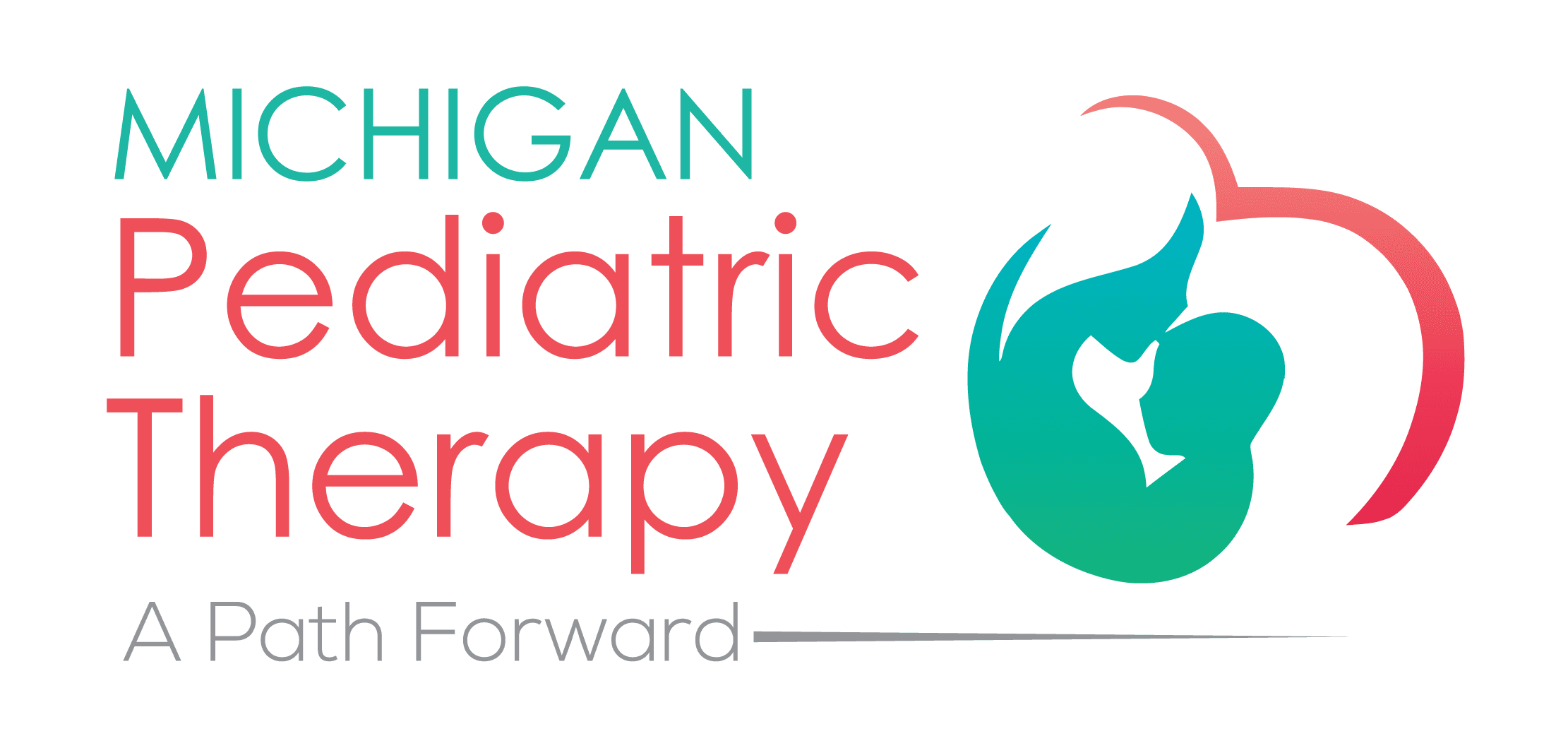As parents and caregivers, we want our children to grow, thrive, and meet every developmental milestone. Sometimes, though, challenges like difficulties with eating, breathing, speaking, or sleeping signal an underlying issue many don’t immediately think about: muscle function in the face and throat. That’s where pediatric myofunctional therapy comes in.
At Michigan Pediatric Therapy, we specialize in personalized myofunctional therapy programs designed to support healthy development and overall well-being. In this blog, we’ll explain what pediatric myofunctional therapy is, why it’s important, how it works, and how it can benefit your child.
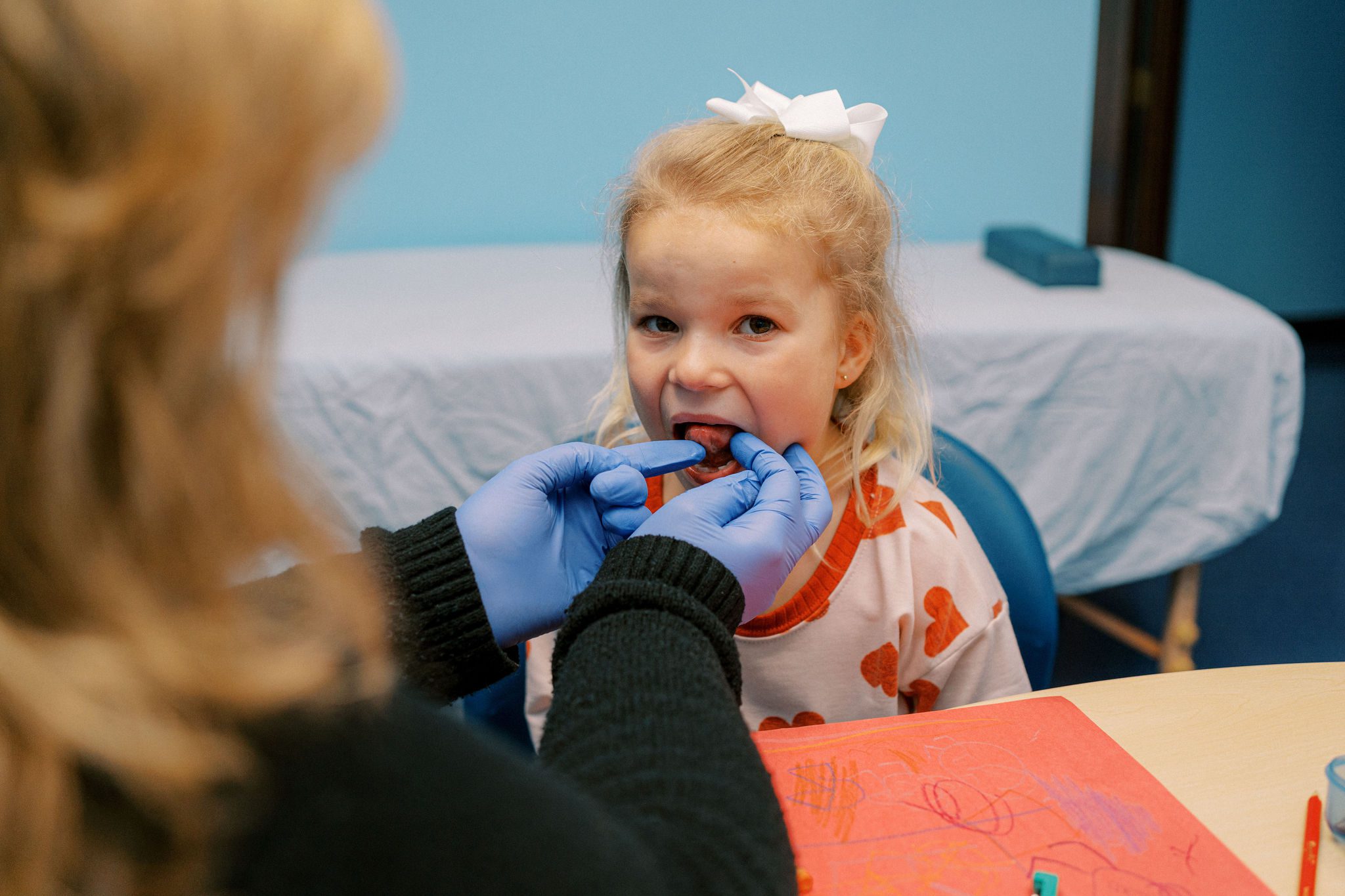
What Is Pediatric Myofunctional Therapy?
When there are disruptions in how these muscles function, children may experience difficulties that impact eating habits, speech clarity, sleep quality, breathing efficiency, and overall growth. Myofunctional therapy aims to “re-educate” these muscles to work properly and efficiently.
At Michigan Pediatric Therapy, our trained occupational therapists create customized therapy plans to address your child’s unique needs, ensuring they gain the skills necessary for a healthy and happy life.
The Four Primary Goals of Pediatric Myofunctional Therapy
1. Improved Breathing Patterns
Many children who benefit from myofunctional therapy tend to breathe through their mouths rather than their noses. Mouth breathing can lead to issues such as poor sleep, dry mouth, and less effective oxygen intake. One of our main goals is to encourage nasal breathing, which promotes better sleep, improved focus, and optimal overall health.
2. Improved Lip Seal
A strong, consistent lip seal helps maintain proper oral posture. Weakness around the mouth can contribute to drooling, open-mouth breathing, and challenges with speech and eating. Through targeted exercises, we activate and strengthen the muscles around the lips to support a proper, natural lip seal.
3. Improved Resting Tongue Position
Your child’s tongue should rest naturally against the roof of the mouth when not eating or speaking. If the tongue rests too low or forward, it can affect facial development, breathing, swallowing, and speech. Our therapy focuses on activating the tongue muscles—forward, backward, laterally, and with elevation—to encourage the correct resting position.
We pay special attention to strengthening the back of the tongue, which plays a crucial role in efficient feeding and respiration.
4. Improved Swallowing Patterns
A correct swallowing pattern ensures that food is properly processed and that children avoid swallowing excess air, which can lead to stomach discomfort, bloating, and even gastrointestinal issues. We teach children how to coordinate their muscles effectively to create safe, efficient, and healthy swallowing habits.
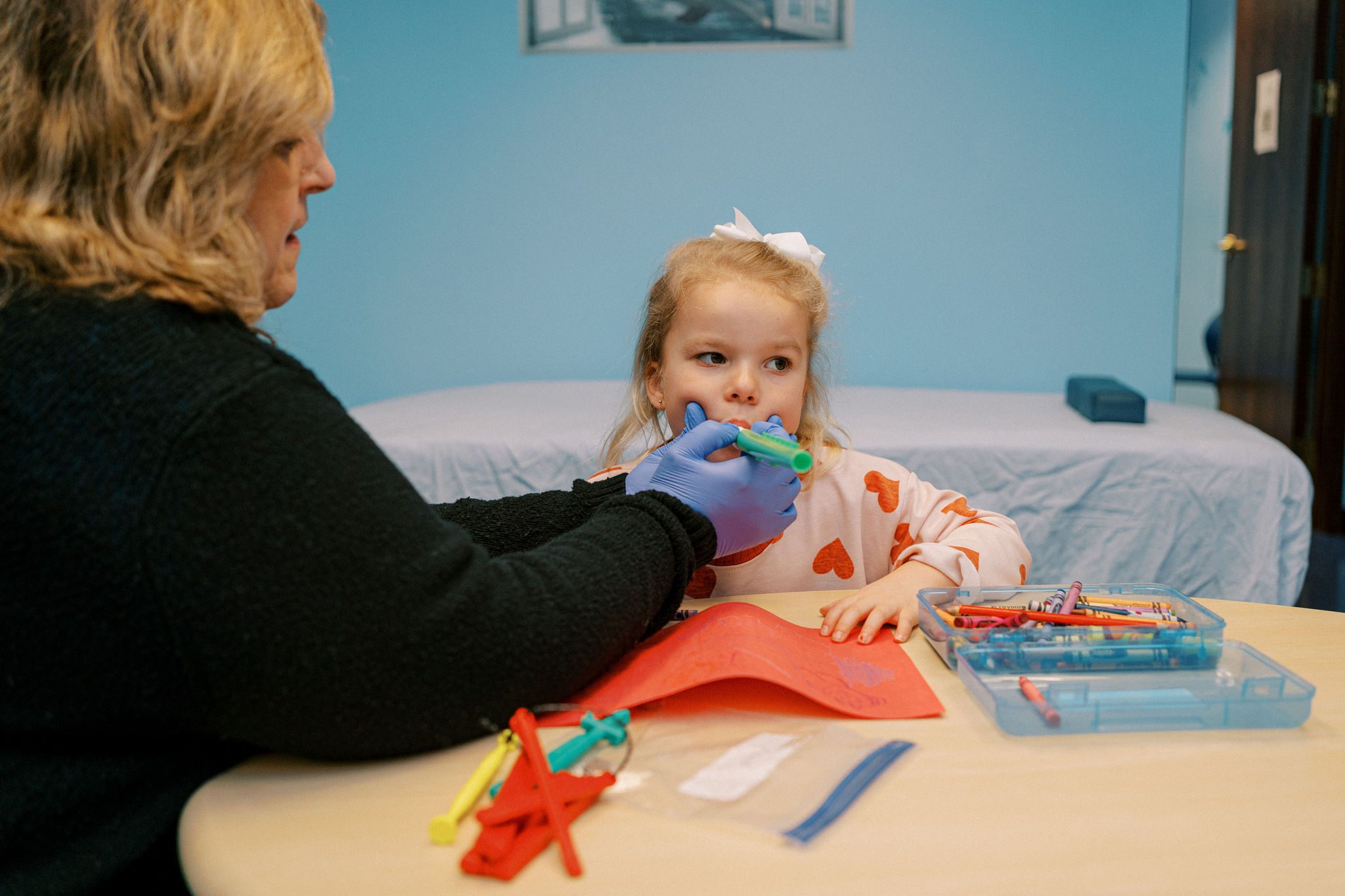
How Myofunctional Therapy Helps Children
Parents may wonder how myofunctional therapy helps with digestion or does myofunctional therapy improve speech? And the answer is yes!
Here are some of the ways myofunctional therapy can benefit your child:
Better breathing
Improved digestion
Speech improvements
Enhanced eating skills
Better sleep
Overall health
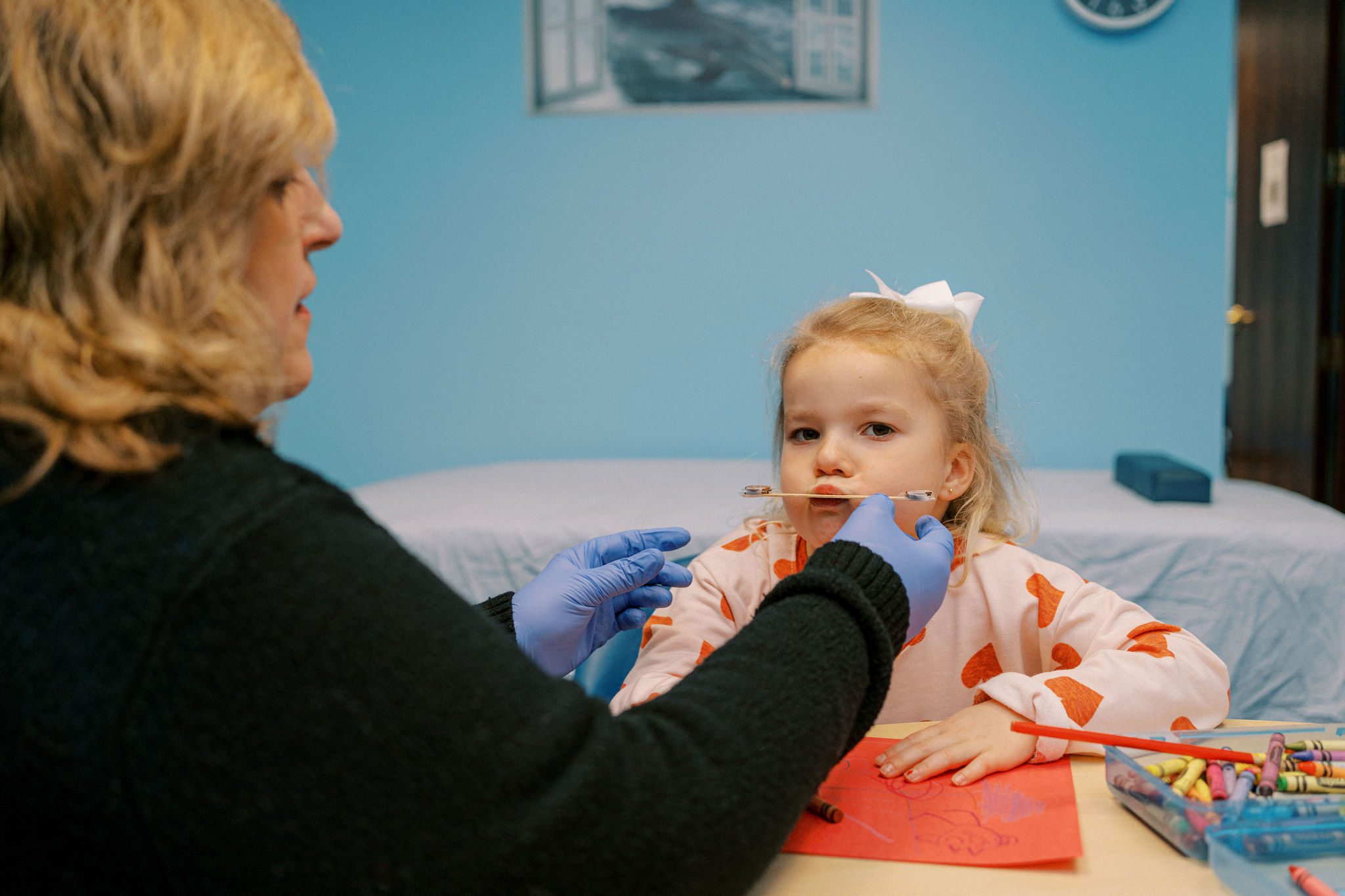
Common Signs Your Child Might Benefit from Myofunctional Therapy
Are you wondering if your child needs myofunctional therapy? Here are some signs to look out for:
- Frequent mouth breathing
- Difficulty latching during breastfeeding
- Speech delays or unclear articulation
- Frequent drooling beyond infancy
- Chronic congestion without illness
- Difficulty chewing or swallowing food
- Snoring or restless sleep
- Behavioral issues linked to poor sleep quality
- Prolonged thumb sucking or pacifier use
- Open-mouth posture when resting
If you notice one or more of these signs, scheduling an evaluation with a pediatric occupational therapist trained in myofunctional therapy can be a critical next step after speaking with your child’s pediatrician.
What Happens During Pediatric Myofunctional Therapy?
At Michigan Pediatric Therapy, each myofunctional therapy program is uniquely designed based on a comprehensive evaluation of your child’s muscle function, breathing patterns, oral habits, and developmental history.
Typically, therapy sessions involve:
- Fun, interactive exercises to strengthen specific muscle groups
- Breathing techniques to promote nasal breathing
- Tongue and lip exercises to promote proper resting posture
- Swallowing practice to refine safe eating habits
- Guidance for parents on reinforcing techniques at home
Children typically attend therapy sessions once a week. Consistency is key to seeing progress in a timely manner. Our therapists make sessions playful and engaging so that children enjoy participating while building important life skills.
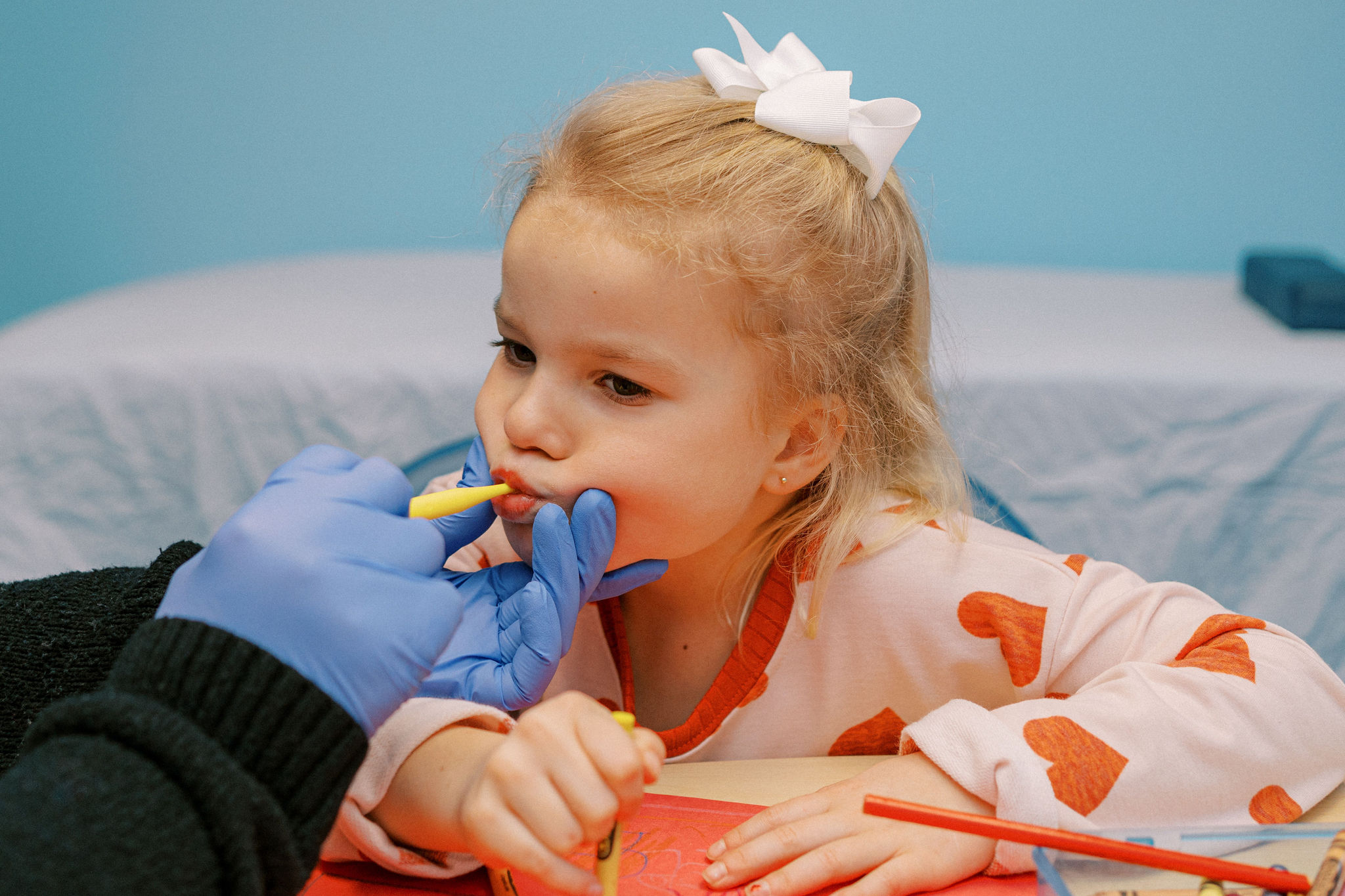
Why Early Intervention Matters
When muscle dysfunction around the face, jaw, and throat isn’t addressed early, it can contribute to longer-term challenges, such as sleep apnea, orthodontic problems, speech difficulties, and poor digestion.
Early intervention through pediatric myofunctional therapy gives children the best chance to develop healthy habits that will benefit them for years to come. Building proper muscle function early helps ensure proper craniofacial development, efficient breathing, effective communication, and better overall quality of life.
How Myofunctional Therapy Complements Other Therapies
If your child is already receiving services like speech therapy, feeding therapy, or occupational therapy, you might wonder how myofunctional therapy fits in. Myofunctional therapy often complements these services beautifully.
For example, speech therapists may work on articulation, while myofunctional therapy targets the underlying muscle weakness that might be making certain sounds hard to produce. Similarly, feeding therapists focus on food introduction and safe swallowing while myofunctional therapy builds the muscle strength needed for these functions to occur naturally.
Together, these therapies create a comprehensive, whole-child approach to support your child’s development.
Choosing the Right Myofunctional Therapy Program
When searching for pediatric myofunctional therapy for your child, it’s important to find a provider with specialized training in both pediatric development and myofunctional exercises. At Michigan Pediatric Therapy, our experienced occupational therapists offer expert care rooted in the latest research and best practices.
We work closely with families, medical teams, and other specialists to ensure that every child receives individualized, effective support.

Ready to Help Your Child Thrive?
Contact us today to schedule an evaluation or learn more about our services. Our friendly, knowledgeable team is ready to answer your questions and guide you through the next steps.
Let’s work together to strengthen the building blocks your child needs for a healthy, thriving future!
Source: Orofacial Myofunctional Therapy Program. (n.d.). Lurie Children’s. www.luriechildrens.org/en/specialties-conditions/orofacial-myofunctional-therapy-program
Michigan Pediatric Therapy
📍 27655 Middlebelt Rd., Suite 130, Farmington Hills, MI 48334
📞 (248) 939-4030
🌐 mipediatrictherapy.com
